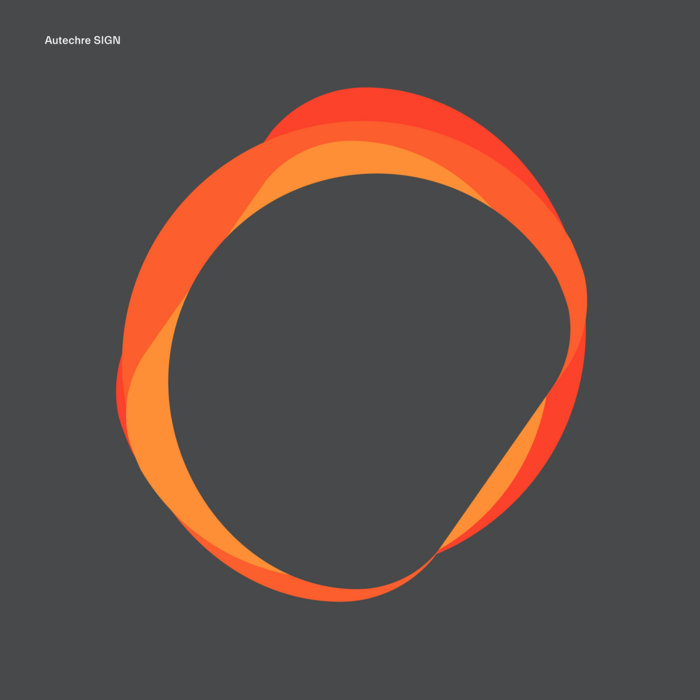UK electronic duo Autechre have been steadily releasing material since 1993, and even though they have a very distinct and identifiable aesthetic, they also continue to surprise. If you just take a look at this past decade of their career, they’ve released a two-hour album of dark unpredictable electronic sounds in Exai, as well as a four-hour album in five parts named elseq 1-5. In addition, they also saw fit to release two separate collections (one live, one composed in a radio residency) of music that were each eight hours long. To put it simply, they create a lot of work, and are unabashed with their serving sizes.
Sometimes, naturally, this kind of thing can get exhausting. But the subtle tweaks to their approach, in addition to the fact that their sound mazes never quite sound the same, lead to a sort of aural hall of mirrors effect: their textures collide, clash, twist around each other, seemingly at random, but of course it never is. Autechre, using mysterious software that they largely write and code themselves, have long provided this mystifying approach to electronic music. It’s not groovy or dancey, but it’s too hectic to simply be ambient.
And since they always surprise, a new album from them is usually cause for, if nothing else, curiosity. Thankfully, on SIGN – their 14th album – the duo have not one-upped themselves again in terms of duration and they have pared things down just a hair. You’d be forgiven for assuming they’d follow up their 2010s output with a 12-hour 8xLP monolith. Quite the contrary, SIGN is their shortest full-length album ever, despite still clocking in at over an hour. Rob Brown and Sean Booth, though, still provide us plenty of spaces to get lost in, plenty of dark hallways and avenues to wander down.
It all starts off with a deep growl, as “M4 Lema” jostles to life. Despite the seemingly-clashing textures and tones, the song ends up settling into a rather ambient-leaning passage, dominated by shining, hollow keys. It’s the longest track here, at eight-and-a-half minutes, but could’ve easily been stretched to the 10 or 12. The following “F7” starts off sounding like one of their most ‘traditional’ songs possibly ever, with an identifiable meter on the bass synths, while the chaotic upper-register keys duke it out overhead. It sounds almost like a soundtrack to a particularly grueling astronomical video game. Third track “si00” begins with ping-ponging synths, the bouncing physics of which are particularly astounding on headphones.
One somewhat shocking move this time around, as evidenced by these opening passages, is the lack of real beats. “si00” comes closest, as a bassier bop takes over underneath the pinballing leads, but the clanging beats the band has featured frequently on past releases are hard to come by in these early outings. Instead, Autechre favor a more enveloping, wide-open sound than they sometimes have, the claustrophobia easing up just a touch, not allowing most of the songs here to be consumed by heavy stomps and juts.
The first time we get close to a real beat is halfway through, on “au14”, which feels more orderly than many past Autechre songs, but provides a sort of thrilling wake-up moment to the album. The synths jumbling and skipping above and clangs shift subtly throughout, getting more and more urgent. “sch.mefd 2” also has a bassy beat underneath its auditory labyrinth, making the song come off like an especially doomy dance track, some lost club anthem that’s gone through a garbage disposal and tossed into a landfill.
Outside of this, though, SIGN is much more concerned with providing intriguing soundscapes, textures, and ambience than many past Autechre albums. Which is not to say it’s without its thrills; quite the contrary, it’s refreshing to hear a band so tied up with a certain identifiable sonic chaos take it a bit easier. Songs like “esc desc” feel like soundtracks to midnight alien abductions, with their swathes of string-reminiscent synths coalescing and into a glowing, enveloping whole. And the downright pretty closer “r cazt” is redolent of some of their older, more ambient pieces, coming off as one of the most shockingly beautiful songs the duo have ever put out.
So while some may miss the utter, blistering, angular noise-scapes of past Autechre albums, be assured that this album is no less Autechre. Despite being, arguably, their most accessible album in over a decade, we are still left with a set of 11 tracks that are just as unpredictable and labyrinthine as ever, and a duo who is trying to work in a slightly different avenue. It’s admirable that after almost 30 years of releasing music, Autechre is able to continue to build upon their trusty tools, and provide us with a slightly altered angle of their work. On SIGN, the duo continue to beguile and confound, still frequently eliciting thoughts of ‘How did they even make this?’ That it’s also their most flat-out gorgeous album in ages is a satisfying bonus.

